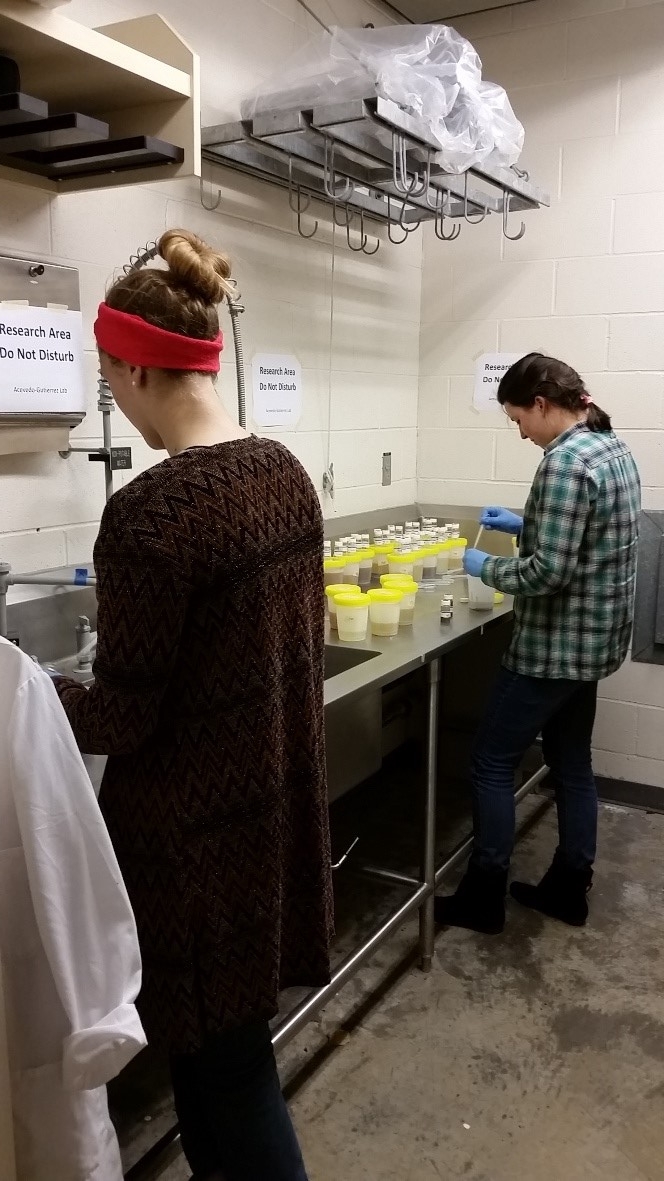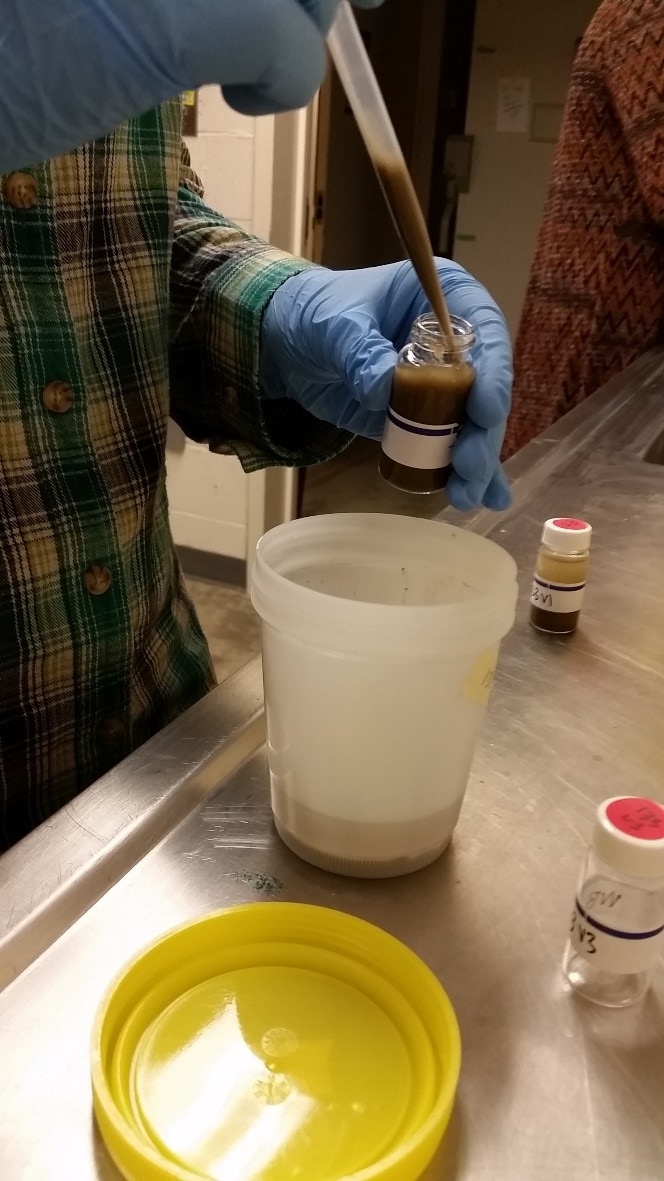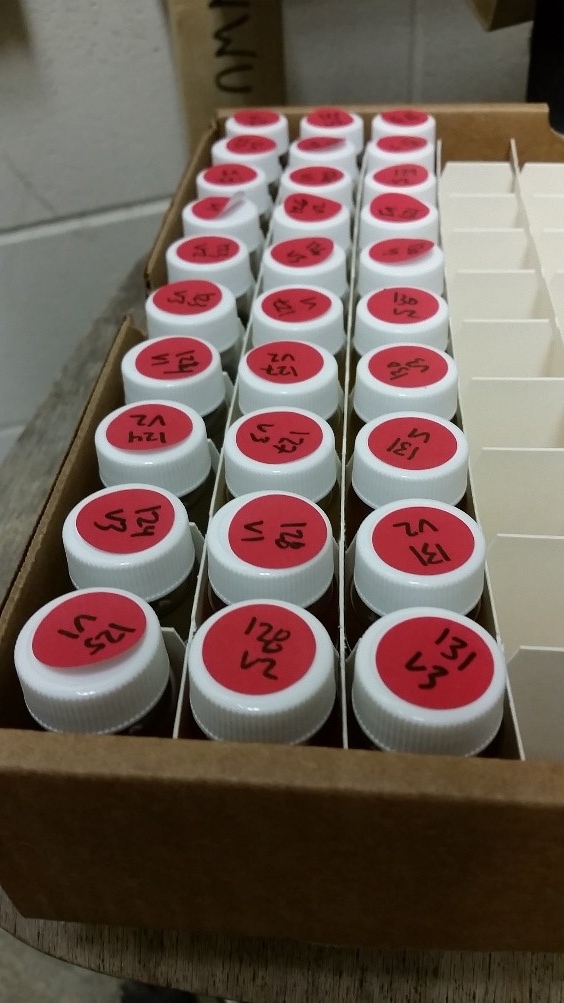October 2016
Processing and proposals
Madelyn Voelker, graduate student
28 October 2016
Seal scat processing is in full swing. We have over one-third of the samples processed. We are into a consistent schedule and are moving through them at a good pace. Brenna and I are developing noses of steel (sort of…). Next week we will be getting an extra hand from a student in Dietmar’s lab that has an interest in seal ecology. Hopefully the smell doesn’t scare him away! If not, he might start helping out on a regular basis. Here are a couple pictures of us processing scat:

The processing bench. Photo: Madelyn Voelker.

Extracting the DNA-Ethanol slurry. Photo: Madelyn Voelker.

Extracted DNA-Ethanol slurries labelled and organized. Photo: Madelyn Voelker.
The other thing that took up some of my time this month was applying for the National Science Foundation Graduate Research Fellowship Program. It is a large grant that is awarded on a very competitive basis. Those that receive the grant are given a tuition waiver as well as research budget and a very decent living stipend. The proposal was tough to get together. There was a lot of leg work involved in obtaining all of the needed background information. Like I mentioned in the last blog, there is A LOT of literature research that needs to happen. The proposal acted as additional motivation to get some more done. However, I am still nowhere near finished! Additionally, the proposal helped to force ideas into an organized framework. With Alejandro’s help, I was able to put together a well-organized and comprehensive proposal. This was an eye-opening process from a writing stand point. Every time I think I’m getting better at editing my own work, I send it off and get back a bunch of edits! While this is a frustrating process, it is immensely valuable. My goal is to apply what I learn to the next proposal, and to the next, improving my writing each time.
Next up for me: finding my thesis committee, completing a plan of study, finding and applying to small grants, and continued literature research.